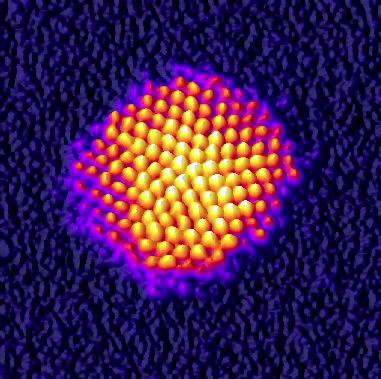講座題目:恒元物理學(xué)講座(第046期):Size-selected gold clusters: resolving the atomic structure of model catalysts
講座人:Prof. Richard E Palmer
講座時(shí)間:11:00
講座日期:2015-9-23
地點(diǎn):長安校區(qū) 物理學(xué)與信息技術(shù)學(xué)院六層學(xué)術(shù)報(bào)告廳(致知樓3623-3624)
主辦單位:物理學(xué)與信息技術(shù)學(xué)院
講座內(nèi)容:The controlleddeposition of beams of size-selected nanoclusters (nanoparticles), assembledfrom atoms in the gas phase and mass-selected before deposition, is a novel [1]but increasingly popular route to the fabrication of functional surfacesstructured on the sub-10nm scale, with applications in catalysis, coatings,radio-sensitizers and biochips [2]. These systems also have the potential toserve as model, ultraprecise reference materials for bio-imaging and metrology(e.g. cryo-electron tomography) and nanotoxicology. Efforts to scale-up therate of cluster generation thus promise significant future impact and will besummarised. However fundamental questions remain over the equilibrium atomicstructures of the clusters themselves, since direct gas phase structuralstudies have been limited and new techniques like aberration-corrected scanningtransmission electron microscopy (ac-STEM) are only now being applied tosoft-landed, size-selected clusters.
I willsurvey our recently published [2-8] and latest systematic ac-STEM experimentswhich address the atomic structure of size-selected “magic number” goldclusters – Au20, Au55, Au309, Au561, and Au923 – including dynamicalmanipulation experiments [6], which probe the transformation of metastableisomers into more stable configurations, and reaction-exposure experiments,which probe the stability of the nanocluster structures under real catalyticconditions. The results distinguish the hierarchy of competing isomers as afunction of cluster size, expose concepts such as templated-growth, provide abody of data to stimulate and constrain computational models and are readilyextendable to other sizes and cluster materials including binary systems. Theimage shows one frame from a dynamical STEM video of an Au923±23 cluster.

1. R.E. Palmer, S. Pratontep and H.-G. Boyen,Nature Materials 2 443 (2003).
2. R.E. Palmer and C. Leung, Trends inBiotechnology 25 48 (2007).
3. Z.W. Wang and R.E. Palmer, Nano Lett. 12 91(2012).
4. Z.W. Wang and R.E. Palmer, Nanoscale 4 4947(2012) [Cover].
5. Z.W. Wang and R.E. Palmer, Nano Lett. 12 5510(2012).
6. Z.W. Wang and R.E. Palmer, Phys. Rev. Lett. 108245502 (2012).
7. S.R. Plant, L. Cao, F. Yin, Z.W. Wang andR.E. Palmer, Nanoscale 6 1258 (2014) [Cover]; S.R. Plant, L. Cao and R.E.Palmer, JACS 136 7559 (2014).
8. D.M.Wells,G.Rossi,R.Ferrando and R.E.Palmer, Nanoscale, 2015, Advance Article [Cover];DOI: 10.1039/C4NR05811A.